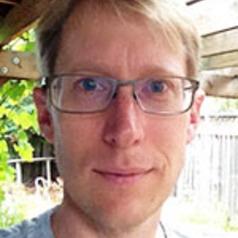
Ken Wharton
Professor of Physics and Astronomy, San José State University
Ken Wharton is a professor in the Department of Physics and Astronomy at San Jose State University. Initially an experimentalist, since 2007 his research focus has been in Quantum Foundations, devising models of what might really be happening down at the quantum scale, even when we're not looking. He has also written a number of popular science pieces, appearing in venues such as New Scientist, Aeon, and Nautilus.
Less ![]()
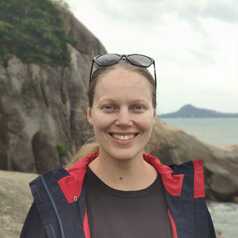
Kendall Mollison
Postdoctoral researcher, University of Newcastle
Dr Kendall Mollison is a postdoctoral researcher in the School of Environmental and Life Sciences at the University of Newcastle. Kendall's research focuses on coastal and marine tsunami hazard.
Less ![]()

Kendra Nixon
Professor, Faculty of Social Work & Director, RESOLVE (Research and Education for Solutions to Violence and Abuse), University of Manitoba
Dr. Nixon’s research has primarily focused on policies aimed at reducing violence, as well as institutional responses to intimate partner violence, including the child welfare and criminal justice systems. Dr. Nixon is also the Director of RESOLVE, a tri-prairie research network on family and gender-based violence.
Less ![]()
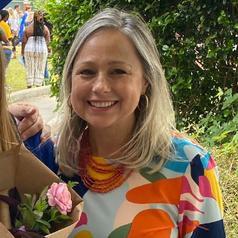
Kendra Stewart
Professor of political science and public administration, College of Charleston
Less ![]()
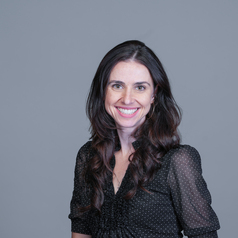
Kendra Thomas
Associate Professor of Psychology, Hope College
Kendra Thomas is an Associate Professor of Psychology at Hope College. She researches character development among parents of young children (in a Zulu South African community) and in elementary schools (in Brazilian public education). Kendra looks for contextual and relational variables that influence longitudinal change. She is particularly curious about how adolescents grapple with (in)justice and how people can develop hope in complex circumstances.
Less ![]()
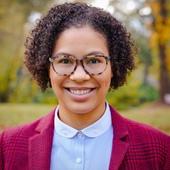

Kenjus T. Watson
Assistant Professor of Urban Education, American University
Kenjus Watson (he/him) is a father, partner, brother, uncle and son who is passionate about reaching back to grounded wisdom, seeding into present challenges, and bridging towards more loving and sustainable futures. As a Assistant Professor in Urban Education at American University, he teaches courses in the EdD Educational Policy and Leadership Program and collaborates across the School of Education. Watson also works alongside community responsive projects as research lead, educator, and co-founder of the Institute for Regenerative Futures in the College of Education at San Jose State University. His interdisciplinary research has focused on the biopsychosocial impact of everyday anti-blackness and colonization (i.e., racial microaggressions) on Black, Indigenous, and other People of Color, as well as the promise of school abolition, re-Indigenization, and apocalyptic education to bring about healing and wellness for people and the planet. Kenjus earned his PhD in Education with an emphasis in Race and Ethnic Studies at UCLA.
Less ![]()
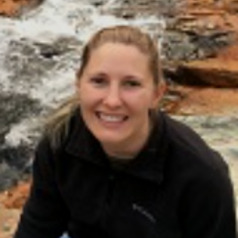
Kenna Lehmann
Postdoctoral Fellow, University of Nebraska-Lincoln
I study the interdependencies and connections among sociality, communication, and cooperation. Modeling suggests that communication and cooperation can be stabilized by social interactions. At the same time, we know communication reduces the potential costs of intergroup competition and cooperation is a way to realize the benefits of sociality. Further, a number of evolutionary hypotheses predict that complexity in one of these three leads to or requires complexity in another. My work uses observations of and experiments with wild and captive animals to tease apart the factors governing how these complex behaviors evolve and interact.
As a PoE Fellow, I am working with Dr. Eileen Hebets to study the cooperative hunting behavior of a social pseudoscorpion (Paratemnoides nidificator) and the neural development and intelligence of the amblypygid (Phrynus marginemaculatus). Paratemnoides nidificator lives in colonies, shares parental care, and hunts large insects. Their unique social structure allows us to ask questions about how social ties and communication signals affect their ability to cooperate to obtain food. From this, we can determine whether social bonds built up over time or signals emitted during hunting are more important for cooperation. Our work with P. marginemaculatus tests two popular hypotheses for the evolution of large brains in primates: environmental complexity and social complexity.
Less ![]()
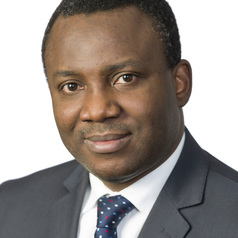
Kenneth Amaeshi
Kenneth Amaeshi, PhD . Associate Professor of Strategy & International Business, Head of Strategy Group, and Director of the Sustainable Business Initiative, University of Edinburgh Business School, UK
Dr Kenneth Amaeshi is an Associate Professor of Strategy & International Business, Head of the Strategy Group, and the Director of the Sustainable Business Initiative (http://www.business-school.ed.ac.uk/sbi) at the University of Edinburgh Business School. He researches, teaches and consults in the broad area of Corporate Social Responsibility, Sustainability Strategy, and Policy Innovation. He is currently leading an international research project on Africapitalism, which explores the role of the private sector in Africa's development. He holds a PhD in International Business and Political Economy from the University of Warwick, UK, where he is also a Research Associate of the Centre for the Study of Globalization and Regionalization. Dr. Amaeshi is a Visiting Faculty of the Doughty Centre for Corporate Responsibility, Cranfield School of Management, UK, and a Visiting Professor at the Lagos Business School, Pan-Atlantic University, Nigeria.
More general information on Dr. Amaeshi can be found on this website: http://www.business-school.ed.ac.uk/about/people/738/Kenneth/Amaeshi
Less ![]()
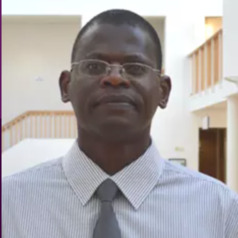
Kenneth Awinda
Senior Lecturer, School of Civil Engineering and Surveying, University of Portsmouth
I am a Senior Lecturer and Associate Head in the School of Civil Engineering and Surveying. I am also a Chartered Civil Engineer having previously spent over 10 years in industry as an engineer and project manager for major consultants and contractors including Capita Symonds, Balfour Beatty and John Laing Ltd. My current research interests are in construction materials and in construction engineering and management.
Less ![]()
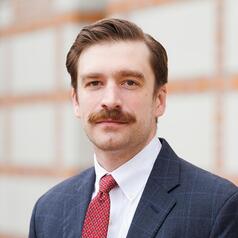
Kenneth Evans
Scholar in Science and Technology Policy, Baker Institute for Public Policy, Rice University
Kenneth M. Evans, Ph.D., is a scholar in science and technology policy at Rice University’s Baker Institute for Public Policy, assistant director for innovation policy at Rice’s Office of Innovation, and lecturer in the Wiess School of Natural Sciences. He also serves as the program manager and co-founder, along with Kirstin R.W. Matthews, of the White House Scientist and Science Policy Dynamic Digital Archive — a heritage collection housed in Rice University’s Woodson Research Center, which preserves materials related to the contemporary history of U.S. presidential scientific advisors.
Evans studies the U.S. federal science, technology, and innovation policymaking system, including funding for research and development, international scientific collaboration, and the governance of emerging technologies. In particular, his research focuses on the role and history of the White House Office of Science and Technology Policy (OSTP) and the President’s Council of Advisors on Science and Technology (PCAST).
Less ![]()
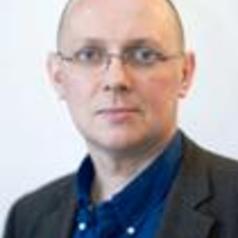
Kenneth Gibb
Professor of Housing Economics and Director, UK Collaborative Centre for Housing Evidence, University of Glasgow
Ken is a professor in the School of Social and Political Sciences in the subject area of Urban Studies. He has been a full time member of staff at the University in various guises since 1989. He became a professor in 2006. Ken was also Head of the Department of Urban Studies from 2005 to 2010 and associate dean of the Faculty of Law, Business and Social Sciences in 2009-10. After four years as Director of Policy Scotland, he is now Director of the UK Collaborative Centre for Housing Evidence.
Ken's research interests are focused on the economic, financial and policy dimensions of housing. He has carried out research for government departments, ESRC, Joseph Rowntree Foundation, trade bodies, the private sector and international organisations like OECD. His current interests are on the financing and economics of social and affordable housing, and, the application of behavioural economics to housing.
Ken was managing editor of the Urban Studies journal for a decade. He was president of RC43 (housing) of the International Sociological Association and is a former president of the European Real Estate Society. He sits on four editorial advisorial boards. He was a visiting professor to the University of Amsterdam in 2011. He has acted as an advisor to the Scottish Parliament's Infrastructure and Capital Investment Committee and given evidence to other similar Parliamentary committees..
He is chair of Sanctuary Scotland housing association.
Ken regularly blogs on housing and related policy matters at http://wordpress.kengibb.com.
Less ![]()
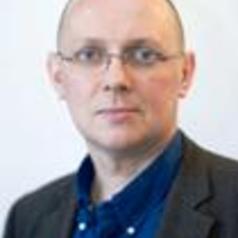
Kenneth Gibb
Professor of Housing Economics, University of Glasgow
Studies. He has been a full time member of staff at the University in various guises since 1989. He became a professor in 2006. Ken was also Head of the Department of Urban Studies from 2005 to 2010 and associate dean of the Faculty of Law, Business and Social Sciences in 2009-10. He is now Director of Policy Scotland, the University's hub for policy research and knowledge exchange.
Ken's research interests are focused on the economic, financial and policy dimensions of housing. He has carried out research for government departments, ESRC, Joseph Rowntree Foundation, trade bodies, the private sector and international organisations like OECD. His current interests are on the financing and economics of social and affordable housing, and, the application of behavioural economics to housing.
Ken was managing editor of the Urban Studies journal for a decade. He was president of RC43 (housing) of the International Sociological Association and is a former president of the European Real Estate Society. He sits on four editorial advisorial boards. He was a visiting professor to the University of Amsterdam in 2011. He has acted as an advisor to the Scottish Parliament's Infrastructure and Capital Investment Committee and given evidence to other similar Parliamentary committees..
After a period as chair of Sanctuary Scotland housing association, Ken is currently a non-executive director of Sanctuary housing association.
Ken regularly blogs on housing and related policy matters at http://wordpress.kengibb.com.
Less ![]()
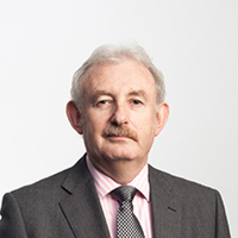
Kenneth Grattan
Professor Grattan graduated in Physics from Queen's University Belfast with a BSc (First Class Honours) in 1974, followed by a PhD in Laser Physics. His doctoral research involved the use of laser-probe techniques for measurements on potential new laser systems.
Following Queen's, in 1978 he became a Research Fellow at Imperial College of Science and Technology, sponsored by the Rutherford Laboratory to work on advanced photolytic drivers for novel laser systems. This involved detailed measurements of the characteristics and properties of novel laser species and a range of materials involved in systems calibration.
In 1983 he joined City University London as a "new blood" Lecturer in Physics, being appointed Professor of Measurement and Instrumentation in 1991 and Head of the Department of Electrical, Electronic and Information Engineering. From 2001 to 2008 he was the Associate and then Deputy Dean of the School of Engineering and from 2008 to 2012 the first Conjoint Dean of the School of Engineering & Mathematical Sciences and the School of Informatics. In 2013 he was appointed the Inaugural Dean of the City Graduate School. He was appointed George Daniels Professor of Scientific Instrumentation in 2013 and to a Royal Academy of Engineering Research Chair in 2014.
His research interests have expanded to include the development and use of fibre optic and optical systems in the measurement of a range of physical and chemical parameters. The work has been sponsored by a number of organizations including EPSRC, the EU, private industry and charitable sources, and he holds several patents for instrumentation systems for monitoring in industry using optical techniques. He obtained the degree of Doctor of Science (DSc) from City University in 1992 for his sensor work. Professor Grattan is extensively involved with the work of the professional bodies having been Chairman of the Science, Education and Technology of the Institution of Electrical Engineers (now IET), the Applied Optics Division of the Institute of Physics and he was President of the Institute of Measurement and Control during the year 2000. He has served on the Councils of all three of these Professional Bodies. He was awarded the Callendar Medal of the Institute of Measurement and Control in 1992, and twice the Honeywell Prize for work published in the Institute's journal as well as the Sir Harold Hartley Medal in 2012 for distinction in the field of instrumentation and control. He was awarded the Applied Optics Divisional Prize in 2010 for his work on optical sensing and the honorary degree of Doctor of the University of the University of Oradea in 2014.
He was elected President of the International Measurement Confederation (IMEKO) in 2014, serving from 2015 to 2018. He was elected to the Royal Academy of Engineering, the UK National Academy of Engineering, in 2008.
Professor Grattan has been Deputy Editor of the Journal Measurement Science and Technology for several years and currently serves on the Editorial Board of several major journals in his field in the USA and Europe. In January 2001 he was appointed Editor of the IMEKO Journal "Measurement" and also serves on their General Council. He is the author and co-author of over seven hundred refereed publications in major international journals and at conferences and is the co-editor (with Professor B T Meggitt) of a five volume topical series on Optical Fiber Sensor Technology. His work is highly cited by his peers nationally and internationally. He is a Visiting Professor at several major Universities in China, with strong links to Harbin Engineering University and the Shandong Academy of Sciences.
Professor Grattan has been a Member of the University Executive Committee (ExCo) since 2008 and chairs two of its sub-Committees, the University Sustainability Committee and the Business Continuity Management Committee. He has served on Senate for over 20 years, as well as many of its sub-Committees.
Less ![]()
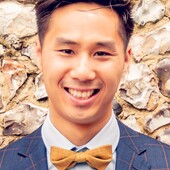
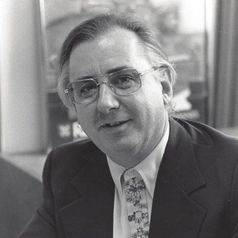
Kenneth L. Kraemer
Research Professor, University of California, Irvine
Kenneth L. Kraemer is Professor Emeritus in the Paul Merage School of Business, University of California, Irvine. He was Founder and Director of the Center for Research on Information Technology and Organizations (CRITO), and Co-Director of the Personal Computing Industry Center (PCIC). He has conducted research on the information technology for more than 47 years. His latest work was on the globalization of innovation, the offshoring of new product development, the dynamics of computing in organizations, the business value of IT, national policies for IT production and use, and the distribution of value in global value chains in the IT industry.
Professor Kraemer is the author or co-author of 15 books, including recently published titles such as Global E-Commerce: Impacts of National Environment and Policy (Cambridge University Press, 2006), and Asia's Computer Challenge: Threat of Opportunity for the U.S. and the World? (Oxford University Press, 1998).
He has written more than 165 articles, many on the computer industry and the Asia-Pacific region, that have been published in journals such as Communications of the ACM, MIS Quarterly, Management Science, Information Systems Research, The Information Society, Public Administration Review, Telecommunications Policy, and Policy Analysis.
Professor Kraemer has also been a consultant on IT policy to major corporations, the federal government, the National Academy of Sciences, the National Academy of Engineering, and the governments of Singapore, Hong Kong, Indonesia, Malaysia, and China. He was the Shaw Professor in Information Systems at the National University of Singapore from 1990-1991. He was elected a Fellow of the Association for Information Systems and received a lifetime achievement award from this professional society.
Less ![]()
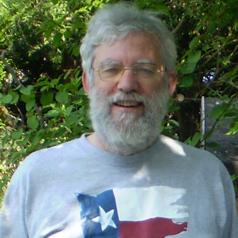
Kenneth McNamara
Emeritus Fellow, Downing College, University of Cambridge
Dr Ken McNamara is a retired University Senior Lecturer in the Department of Earth Sciences and former Director of the Sedgwick Museum. He is an Emeritus Fellow Downing College. He is also an Adjunct Professor at the University of Western Australia. The underlying thread that runs through much of his research is the relationship between evolution and development, with particular reference to the fossil record.
Current projects include: the role of developmental change in macroevolution, with particular emphasis on heterochrony; analysis of patterns of evolution and extinction in trilobites before and after the Late Devonian mass extinction event, 370 million years ago; diversity, palaeoecology and patterns of gastropod predation on Eocene and Miocene sea urchins; biotic responses to mass extinctions in Late Cretaceous serpulid worms, with particular emphasis on phenotypic variation as an indicator of environmental stress; Permian echinoderms from Western Australia; the archaeology and folklore of fossils, with an emphasis on sea urchins; and the contribution of Dr John Woodward (1667-1728) to the early development of geology.
He has written, co-written or edited a number of books, including 'Unearthing the Underworld: a Natural History of Rocks' (2023); 'Dragons' Teeth and Thunderstones: the Quest for the Meaning of Fossils' (2020); 'The Star-Crossed Stone' (2010); 'Prehistoric Mammals of Western Australia' (2010); 'Australia's Meteorite Craters' (2009); Pinnacles' (2009); 'Stromatolites' (2009); 'The Evolution Revolution' (2007); 'Human Evolution and Developmental Change' (2002); 'Ancient Floras of Western Australia' (2001); 'Shapes of Time: the Evolution of Growth and Development' (1997); 'Evolutionary Change and Heterochrony' (1995); 'Heterochrony: the Evolution of Ontogeny' (1991).
Less ![]()
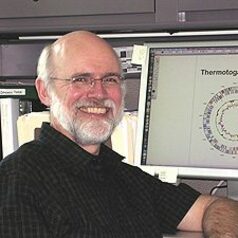
Kenneth Noll
Professor Emeritus of Microbiology, University of Connecticut
I am a Professor Emeritus in the Microbiology program at UConn. I formerly conducted research and taught courses in the Department of Molecular and Cell Biology. My laboratory conducted research on microbes that lived at very high temperatures and the publications that resulted from my work can be accessed here, at PubMed.
Less ![]()
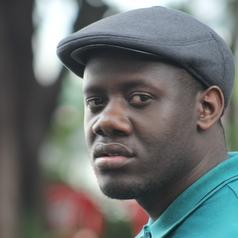
Kenneth Nsah
Expert in Comparative Literature and Environmental Humanities, Université de Lille
Kenneth Toah Nsah, better known by his pen name Nsah Mala, has a PhD in Comparative Literature and Environmental Humanities from Aarhus University (Denmark). His doctoral thesis was entitled: "Can Literature Save the Congo Basin? Postcolonial Ecocriticism and Environmental Literary Activism." And the thesis won the Prix de thèses francophones en Prospective 2022 (Prize for Francophone Theses in Foresight and Futures Studies) from la Fondation 2100 (France) and l'Agence Universitaire de la Francophonie (AUF). Nsah obtained the Erasmus Mundus Master Crossways in Cultural Narratives from Université de Perpignan Via Domitia (France), University of St Andrews (UK), and Universidad de Santiago de Compostela (Spain). He has teaching and academic degrees in Bilingual Studies (English and French) from the University of Yaoundé 1 and École Normale Supérieure de Yaoundé in Cameroon. He has expertise and research interests in environmental humanities; environmental communication; postcolonial ecocriticism; literary activism; youth climate activism; literature, climate change and environmental problems in the Congo Basin; climate-environment-migration nexus; comparative literature; Cameroonian and African literatures in English and French; diasporic literatures; indigenous studies; ethnolinguistics; literature and migration; medical humanities; and creative writing. He is a writer, poet, children's author, EN <> FR translator, copyeditor, journalist, and interdisciplinary literary and cultural scholar. He is the author and editor of numerous publications, including peer-reviewed articles and book chapters, poetry collections and anthologies, and picture books for children, in English and French. He has won literary prizes in Cameroon and France.
Less ![]()
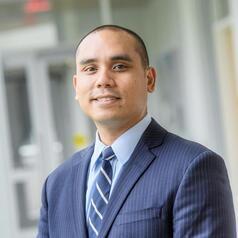
Kenneth Andrew Andres Leonardo
Postdoctoral Fellow and Visiting Assistant Professor of Government, Hamilton College
Kenneth Andrew Andres Leonardo received his Ph.D. in political science from Claremont Graduate University and his B.A. in political science, international relations from Bucknell University. His research and teaching interests include history of political thought (Western, non-Western, and Indigenous), American political development, liberation, martial virtue, resistance, and revolution. Currently, he is working on research projects exploring various forms of resistance to injustice. His work has appeared in Polis and The Conversation. Recent and previous affiliations include the Newberry Library, the Huntington Library, and the American School of Classical Studies at Athens.
Less ![]()
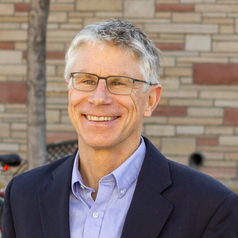
Kenneth F. Reardon
Professor of Chemical and Biological Engineering, Colorado State University
Dr. Reardon joined the department in 1988 after a year of postdoctoral research at the Universität Hannover as an Alexander Von Humboldt Fellow. He is Professor and Jud and Pat Harper Chair of Chemical and Biological Engineering, and holds joint appointments in several other science and engineering programs at CSU, including Cell and Molecular Biology, Ecology, and Biomedical Engineering. Dr. Reardon received his BS degree from the University of Pennsylvania and his PhD from the California Institute of Technology, both in chemical engineering. His research combines bioreactor analysis, systems biology (primarily proteomics), and applied microbiology and microbial ecology. His group’s current projects involve biosensors, the application of proteomics to microbiome analysis, and the analysis and engineering of bacteria and algae for the production of biofuels and other chemicals. He is also interested in the interconnected challenges of food, energy, and water production (the food-energy-water nexus), which is becoming a major issue around the world. Dr. Reardon is the Director of the Sustainable Bioenergy Development Center and a co-Director of the Colorado Center for Biorefining and Biofuels. He is also the founder and Chief Technology Officer of OptiEnz Sensors, which is based on research from his laboratory. Dr. Reardon received the Faculty Excellence Award from the College of Engineering at CSU in 2009.
Less ![]()

Kenneth Kaysan Khayr (Fu Xian) Ho
University Lecturer in Marketing and Consumer Behaviour, Edith Cowan University
Less ![]()
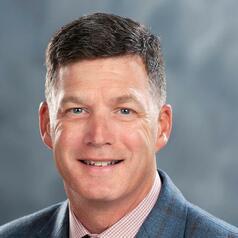
Kenneth V. Anthony
Associate Professor of Elementary Education, Mississippi State University
PhD, Mississippi State University, Secondary Education-Social Studies, 2009
M.A., United States Naval War College, National Security and Strategic Studies, 2023
MEd, Mississippi University for Women, Gifted Education, 1997
BS, Mississippi University for Women, History, 1993
Current research agenda includes rural education, preservice teachers knowledge and ability to teach social studies disciplines, using primary sources in the classroom, and homeschooling.
Less ![]()
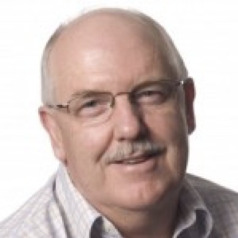
Kenneth W Beagley
Professor of Immunology, Queensland University of Technology
Traditional vaccine approaches have been unsuccessful in preventing chlamydial infections. Prof. Beagley and colleagues are researching novel DNA vaccination and bioinformatics approaches to identify protective chlamydial antigens that are conserved across several chlamydial species. Using combinations of these antigens we can reduce both the duration and magnitude of infection and reduce infection-associated inflammation that is the cause of infertility in animal models of chlamydial infection. We are now working with collaborators in the US and a major vaccine company to develop a human Chlamydia vaccine. We have also used these antigens to develop the world’s first Chlamydia vaccine for the koala. This vaccine has been shown to protect young koalas in a wild population with a high incidence of chlamydial infection and disease and has increased reproductive success in this population. The vaccine is currently undergoing registration.
Neisseria gonorrhea is another human STI and is a disease of increasing concern due to antibiotic resistance. We have established a new mouse model of Neisseria infection in male mice and have shown that infection adversely affects sperm production similar to what we find with Chlamydia infection. We are currently using this model to further investigate the effects of Neisseria infection on male fertility and for development of vaccines to prevent infections.
Prof. Beagley is a past-president of the International Society for Mucosal Immunology and is a member of the Australian and New Zealand Society for Immunology, the American Association of Immunologists, the Society for Reproductive Biology, the American Society for Reproductive Immunology, the International Society for Vaccines and the International Society for Immunology of Reproduction.
Less ![]()

Kenny Au
Kenny Au is a venture capitalist and partner at Elevate Ventures, as well as a writer and fitness enthusiast.
Less ![]()
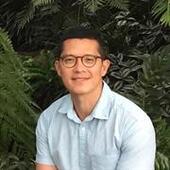
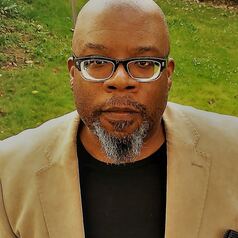
Kenny Monrose
Researcher, Department of Sociology, University of Cambridge
Kenny Monrose is a researcher at the University of Cambridge in the Department of Sociology and a Fellow of Wolfson college Cambridge. He is the lead researcher on the Black British Voices Project at Cambridge Sociology.
Kenny has many year's experience in teaching, supervising and examining undergraduate and post-graduate students in the areas of Sociology, Behavioural Sciences and Criminology and Criminal Justice.
He completed a PhD in Sociology at the University of Essex in 2013. His doctoral thesis was a qualitative study centred in East London, examining the life course of maturing black men, with a focus on criminal preclusion and non-criminal participation. The study made an original contribution to knowledge by highlighting the scholarly omission of black adult male populations within academic deliberation on 'race' and crime. The thesis highlighted the continued confinements of prejudice, discrimination, and everyday racisms in the lives of black men, whilst rigorously engaging with several related areas such as familial configuration, identities, and social position.
Kenny acted as a Research Fellow with Middlesex University in collaboration with the Mayors of London’s office for policing and crime, examining the development of specialist support services for young people who have been victims of crime, abuse and/or violence.
Dr Monrose is the author of Black men in Britain: an ethnographic portrait of the post Windrush generation. The book engages with an invisible population of Black men who grew up during 1970s and 80s post-industrial Britain, and as part of an environment that rendered them irrelevant and indistinguishable.
He is an affiliate at The Centre for Screen & Film within the Faculty of Modern & Medieval Languages & Linguistics, and a member of Centre for the study of Global Human Movement at the University of Cambridge.
Less ![]()
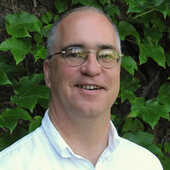

Kent E Vrana
Professor and Chair of Pharmacology, Penn State
Dr. Kent E. Vrana is the Elliot S. Vesell Professor and Chair of Pharmacology at the Penn State College of Medicine. He received his B.S. with honors in Biochemistry from the University of Iowa, and his Ph.D. in Biochemistry (Pharmacology minor) from Louisiana State University Medical Center in New Orleans. His post-doctoral fellowship training was in embryology and molecular biology at the Carnegie Institution of Washington in Baltimore, MD (on the Johns Hopkins University campus).
Dr. Vrana joined the Department of Biochemistry at the West Virginia University Health Sciences Center as an assistant professor and then moved to the Department of Physiology and Pharmacology at the Wake Forest University School of Medicine where he rose through the ranks to full professor. In 2004, Dr. Vrana assumed the position of Professor and Chair of Pharmacology at the Penn State University College of Medicine.
Dr. Vrana is a member of the editorial boards of several scientific journals (Associate Editor for Pharmacology (Karger Press), the Journal of Pharmacology and Experimental Therapeutics (an ASPET journal) and Medical Cannabis and Cannabinoids (Karger Press)). He has served as chair (30 times) and/or a member of over 110 scientific review panel meetings for the federal government and non-profit organizations. He has co-authored more than 190 scientific articles, book chapters, and monographs (including two textbooks). In 2009, he was named an honorary professor of the School of Medicine of the Peruvian University of Applied Science in Lima, Peru, and was inducted into the Society of Distinguished Educators at the Penn State College of Medicine. In 2015, he was elected a Fellow of the American Association for Advancement of Science (AAAS). He currently serves the immediate past president of the Association of Medical School Pharmacology Chairs (AMSPC).
Less ![]()
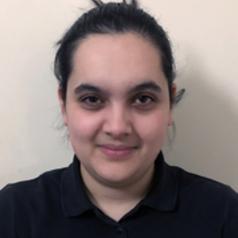
Kenya Fernandes
Postdoctoral Researcher, University of Sydney
I am a microbiologist at the University of Sydney. My research interests include:
- Investigating the biology of microbial pathogens and avenues for their treatment.
- Drug discovery from natural products.
- The antimicrobial potential of Australian honey.
- The role of fungi in bee nutrition and health.
Less ![]()
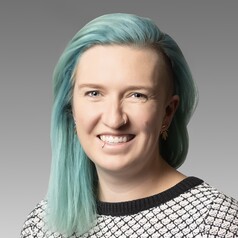
Kenzie Gordon
PhD Candidate, Digital Humanities & Media Studies, University of Alberta
Kenzie Gordon (she/her) is a social worker and PhD candidate in Digital Humanities and Media & Cultural Studies at the University of Alberta on Treaty 6 territory. She is the Project Manager for The First Three Years (https://first3yearsproject.com/), a longitudinal study of new graduates from postsecondary games programs entering the industry in Canada and the United States. Her research spans equity issues in games and game education, and the intersections of gender-based violence and video games.
Less ![]()
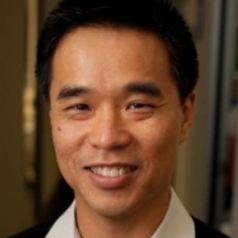
Keong Yap
Associate Professor of Psychology, Australian Catholic University
I am the National Course Coordinator for postgraduate psychology programs at the School of Behavioural and Health Sciences. I joined ACU in 2015 to assist in setting up the Master of Psychology (Clinical) course in the Strathfield campus. I graduated in 2002 from the University of Melbourne with a Doctor of Psychology majoring in clinical psychology. I am a registered psychologist with clinical endorsement and a PsyBA accredited supervisor.
My research interests are in the area of clinical psychology. My research focuses on obsessive-compulsive disorder and hoarding disorder. I am also very interested in examining the application of mindfulness and acceptance-based therapies (e.g., acceptance and commitment therapy) for these conditions. For further details: https://www.researchgate.net/profile/Keong_Yap/contributions
Please also visit the ACU Strathfield Clinical Psychology Research Lab https://www.acu.edu.au/about-acu/faculties-directorates-and-staff/faculty-of-health-sciences/school-of-behavioural-and-health-sciences/research/the-clinical-psychology-lab-strathfield-campus
Less ![]()
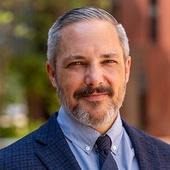
Kerby Goff
Associate Director of Research at the Boniuk Institute for the Study and Advancement of Religious Tolerance, Rice University
Less ![]()
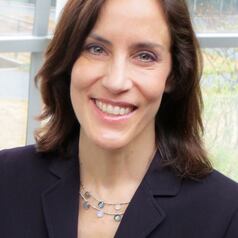
Keren McGinity
Research Associate, Brandeis University
I am the first Interfaith Specialist at the United Synagogue of Conservative Judaism, the umbrella organization of over 500 congregations across North America. I is also a research associate at the Hadassah-Brandeis Institute at Brandeis University, where I've taught American Studies. Previously, I was the inaugural director of the Interfaith Families Jewish Engagement graduate program at Hebrew College. My pioneering books, Still Jewish: A History of Women & Intermarriage in America (NYU Press 2009), a National Jewish Book Award Finalist, and Marrying Out: Jewish Men, Intermarriage, and Fatherhood (Indiana University Press 2014), provided groundbreaking analyses about Jewish continuity by focusing on gender and change over time. My advice & opinions have appeared in the Forward, Lilith & Moment magazines, the New York Jewish Week, RitualWell, Sh’ma, the Times of Israel & eJewishPhilanthropy. I earned a PhD in History from Brown University and was the Mandell L. Berman Postdoctoral Research Fellow in Contemporary American Jewish Life at the University of Michigan’s Frankel Center for Judaic Studies. I am a 2018 Forward 50 honoree for my clarion call for a Jewish response to the #MeToo movement, named on Lilith magazine’s “7 Jewish Feminist Highlights of 2018” list and was a JewishBoston “Top Pick.” My new book is #UsToo: How Jewish, Muslim, and Christian Women Changed Our Communities (Routledge 2023)." I served as an Ombud on the Committee on Sexual Misconduct of the Association for Jewish Studies and as a Board Member of the Association for the Social Scientific Study of Jewry. I currently serve on the Academic Advisory Council of the Jewish Women’s Archive. When not roughing it in the woods of Maine, I live in Brookline, MA. To learn more, visit my professional website: loveandtradition.org
Less ![]()
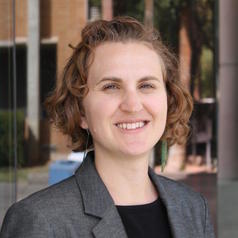
Keri Szejda
Food Safety and Health Communication Scholar, Center for Research on Ingredient Safety, Arizona State University
Less ![]()
- Market Data























